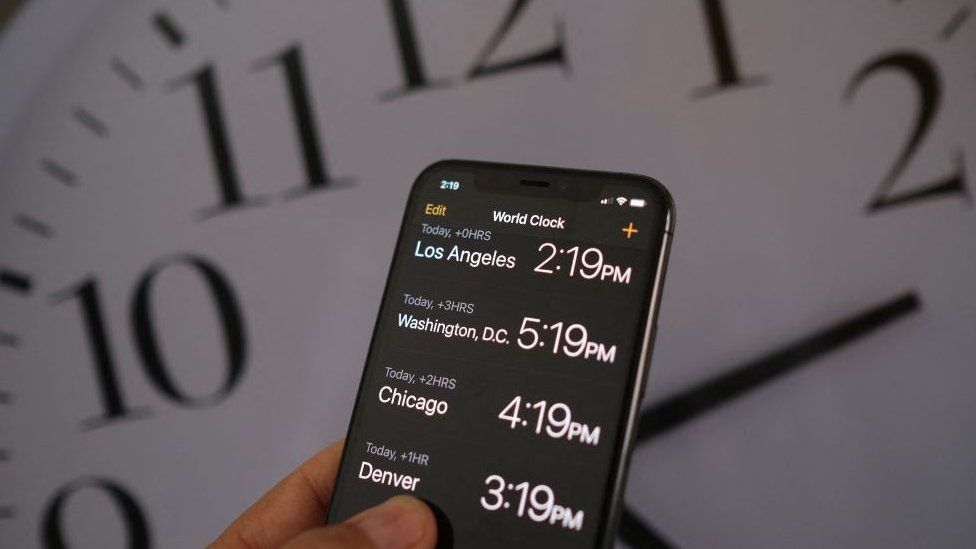
The US Congress has the power of war and peace, to tax and spend billions of dollars and to regulate the lives of hundreds of millions of Americans. It even has control of time itself - or, at least, over the time that is displayed on the nation's clocks.
Since World War One, the US - like many nations around the world - has set its clocks forward during summer hours in order to have more daylight in the afternoon (and, theoretically, conserve electricity), then rolled them back in autumn. On Tuesday, the US Senate voted to do away with that switch, making Daylight Savings Time - the summer month clock settings - permanent year-round.
The legislation, called the Sunshine Protection Act, is the pet project of Republican Senator Marco Rubio of Florida (whose nickname, perhaps not coincidentally, is "the Sunshine State"). He has been pitching legislation to make Daylight Savings Time permanent for four years, but this is the first time he's found some success.
The Senate measure was approved by unanimous consent - a process usually reserved for non-controversial legislation like naming post offices, designating disease-awareness days and celebrating sports league champions - just a few days after the US implemented its annual "spring forward" time change.
"Pardon the pun," Mr Rubio said after the bill was approved, "but this is an idea whose time has come."
During his floor speech, the Florida senator presented a number of arguments in favour of the change. He said there are studies showing that clock-switching has a deleterious effect on health. Heart attacks and accident rates increase around the time changes. And anything that gives children more daylight to play in after school ends, instead of sitting inside, in front of electronics, is a good thing in his mind. (Florida is a state where children might still want to play outside in January, of course.)
Education is a concern for opponents of the legislation, however, who note that more children will end up going to school in the dark - which could be dangerous - under the new system.
Any one senator could have objected and prevented passage of Mr Rubio's proposal, but the speed at which it came up for consideration may have caught opponents off-guard. According to Buzzfeed News, Arkansas Senator Tom Cotton would have blocked the bill but his staff didn't inform him the legislation was being brought to the floor. Confusion seemed to be the order of the day for all but a handful of the Senate's daylight time enthusiasts.
"It's literally an issue my staff and I had never discussed, and they made an assumption that I don't really care about daylight saving time," Delaware Senator Chris Coons told Buzzfeed. "And I don't know if I do! I've never taken five minutes to stop and think about it."
It's too late for that now, at least in the Senate.
The legislation moves to the House of Representatives, where it must also be approved by majority vote before it can be signed into law by President Joe Biden.
The White House hasn't taken a position on the matter, but House Speaker Nany Pelosi, after expressing her own surprise that the Senate had acted so quickly, said she supported the measure - although she added that her chamber was more focused on tasks related to the Russian invasion of Ukraine.
"Stop" - Google News
March 18, 2022 at 01:19AM
https://ift.tt/FDotdbW
Will US really stop changing its clocks twice a year? - BBC.com
"Stop" - Google News
https://ift.tt/poLBbHn
https://ift.tt/juNsUDv
Bagikan Berita Ini














0 Response to "Will US really stop changing its clocks twice a year? - BBC.com"
Post a Comment